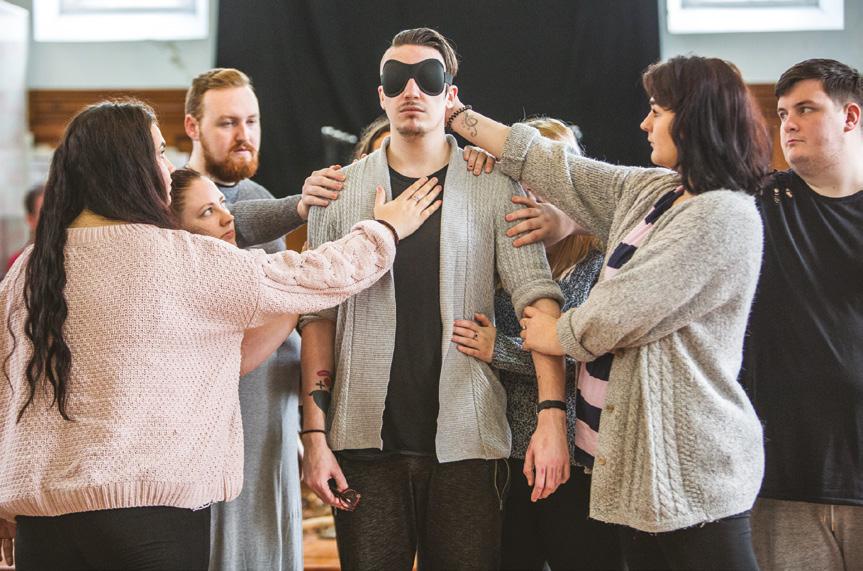Inspiration from ACE Interrupters in Great Britain
Summary So many of the people interviewed in this book are “It’s creating a bit more understanding trailblazers in the field of tackling childhood adversity and empathy – not sympathy” Kath Bevan, assistant director, – role models who have already inspired others to Education Achievement Service, page 30 examine how they can prevent ACEs and support those suffering their consequences. Increasingly more professionals are becoming aware of ACEs and the lifelong impact these and other adversities can have on individuals’ behaviour and health. As we have seen in the stories shared by our ACE interrupters, awareness of ACEs is also beginning to reach more families and communities. Across the UK, we are beginning to see the importance of ACE-prevention, resilience-development and trauma-informed services for both children and adults reflected in policy and practice. In Wales, the national strategy (Prosperity for All), recognises that every child should get the best start in life – stating “a series of adverse childhood experiences (ACEs) can have a devastating effect on development. This is why it is so important to lay successful foundations from the earliest age” (pp. 23).43 The plan for health and social care in Wales is built on similar foundations (“We know that factors in our childhood, particularly ‘adverse childhood “If all it takes is one adult, experiences,’ have a significant impact on us as we grow up” – A then imagine if I got everybody Healthier Wales; pp. 9).44 In 2017, the Scottish Government set on my team thinking in out its commitment to preventing and reducing the negative that same way” 45 46 Lindsey Watkins, head teacher, impact of ACEs and to addressing child poverty. In both Wales and Scotland, ACE-support systems (e.g. the Welsh ACE Support Millbrook Primary School, Hub) have been developed to progress national action and share Wales, page 24 best practice. With increasing focus on the importance of prevention, across UK nations police are also adapting their approach to tackling serious violence – fostering a public health approach that recognises how exposure to ACEs can be one of the catalysts for a life of violence and crime.47 Consequently, the long-term solution to reducing crime is dependent on how we support and protect our children. From new directions in policy, changes in practice are emerging. In Wales, the Home Office funded Early Action Together Programme is delivering training to ensure that all frontline police officers understand how to help prevent ACEs, better support individuals who experience them and more effectively tackle anti-social behaviour resulting from a legacy of early adversity.48 ACE training in schools and health systems, along with a national TV campaign,xii means that as many as 75% of those working in Welsh public services have heard of ACEs and just under half have been offered training by their organisation.49 In 2016, the Public Health Network in Scotland set out a range of areas where action was needed to address ACEs. Public Health Scotland co-ordinates a Scottish Childhood Adversity Hub to bring a range of sectors together to progress these actions and to advocate and support a public health approach to childhood adversity. An important development in Scotland in recent years has been the Scottish Government’s commitment to developing trauma-informed services and a trauma-informed workforce across Scotland. This is supported by investment in a National
The national TV campaign was part of a wider public awareness-raising campaign – It’s time to be kind - delivered by the Welsh ACE Support Hub in June 2019. See https://www.aceawarewales.com/timetobekind for more information.
xii
55





